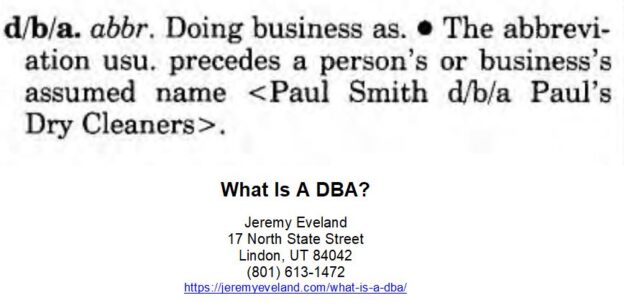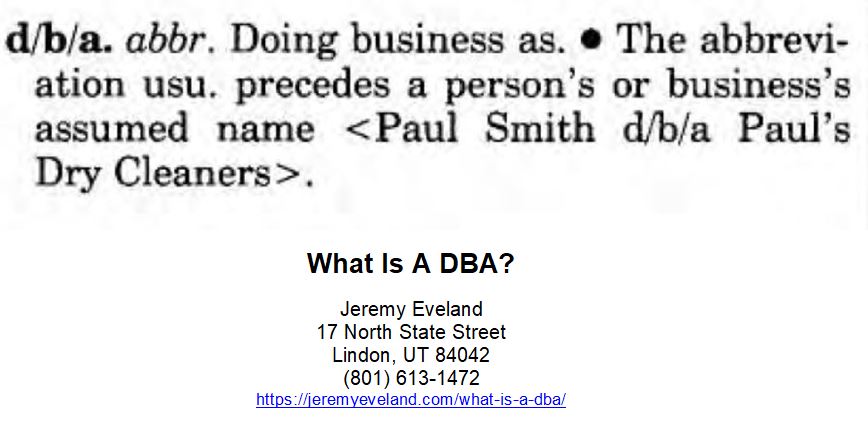Divorce can be a challenging and emotional experience, and it also has a significant impact on your financial well-being. In this article, we will be exploring the connection between divorce and your credit score, and how you can effectively manage the financial repercussions of this life-changing event. From addressing common legal concerns to providing guidance on preserving your creditworthiness, we aim to offer reassurance and support during this difficult time. By delving into important information and creating an emotional connection, we hope to equip you with the necessary knowledge to navigate this aspect of divorce. So, let’s dive into the topic and uncover strategies to protect your credit score and future financial stability.
Understanding the Impact of Divorce on Your Credit Score
Going through a divorce can be an emotionally challenging time, and while your focus may be on the immediate effects and changes in your personal life, it’s essential not to overlook the potential impact on your credit score. Divorce can have far-reaching consequences on various aspects of your financial life, including your creditworthiness and ability to secure loans or credit in the future. In this article, we will explore how divorce can affect your credit score, the role of joint accounts in credit scores, and the importance of separating your finances during and after a divorce.
How Divorce Can Affect Your Credit Score
Divorce can have both direct and indirect effects on your credit score. One of the most significant factors that can contribute to a decline in your creditworthiness is if joint debts, such as mortgages, loans, or credit cards, are not managed appropriately or become delinquent. If your spouse fails to uphold their financial obligations and misses payments, it can negatively impact your credit score as well. Additionally, the division of assets and property during a divorce can result in financial strain, making it challenging to meet your financial obligations and maintain a good credit history.
The Role of Joint Accounts in Credit Score
Joint accounts play a crucial role in credit scores, especially during a divorce. When you have joint accounts with your spouse, both individuals are equally responsible for the debts associated with those accounts. Any late payments or defaults on joint accounts will affect your credit score, regardless of who made the payment or incurred the debt. It is important to understand that even if a divorce decree states that one spouse is responsible for certain debts, creditors are not legally bound by this agreement and can still hold both parties liable. Therefore, it is important to take proactive steps to protect your credit during and after a divorce.
Separating Your Finances: Importance and Impact
Separating your finances from your ex-spouse after a divorce is not only important for your financial well-being but also for the health of your credit score. By disentangling your financial lives, you can minimize the risk of being affected by your ex-spouse’s financial decisions or actions. This involves closing joint accounts, dividing assets and debts, and establishing individual credit. Taking these steps can provide you with a fresh financial start and help you rebuild your credit on your own terms.
Steps to Protect Your Credit During a Divorce
Divorce is a complex and challenging process, but there are steps you can take to protect your credit during this time of transition. By being proactive and staying informed, you can minimize the potential negative impact on your creditworthiness. Here are some essential steps to consider:
Reviewing Your Credit Reports
Before making any financial decisions during a divorce, it is crucial to review your credit reports from all three major credit bureaus – Equifax, Experian, and TransUnion. By carefully examining your credit reports, you can identify any inaccuracies, unauthorized accounts, or discrepancies that may be affecting your credit score. Addressing these issues early on can help prevent further damage to your credit.
Closing Joint Accounts
One of the first steps to take when separating your finances is to close joint accounts. This includes joint credit cards, loans, or any other accounts held jointly with your ex-spouse. Contact your creditors to request the closure of these accounts and inquire about alternative options, such as transferring the balances to individual accounts or refinancing loans solely in your name. Closing joint accounts can help protect your credit by preventing your ex-spouse’s financial actions from impacting your credit score.
Consider Establishing Individual Credit
If you didn’t have individual credit in your name during your marriage, now is the time to establish it. Open individual credit cards and maintain a good payment history to build a positive credit profile. This will give lenders and creditors an indication of your ability to manage credit responsibly and can be crucial when applying for loans or credit in the future. Additionally, having individual credit can provide you with a safety net and financial autonomy.
Communication with Your Ex-Spouse
Although communication with your ex-spouse may be challenging during a divorce, it is essential to establish clear lines of communication regarding financial matters. Discuss how joint debts will be managed, including who will be responsible for making payments and how expenses will be divided. By openly communicating and reaching agreements on financial matters, you can minimize misunderstandings and potential negative impacts on your credit.
Dealing with Outstanding Debts
Debts accumulated during a marriage can become a significant concern during a divorce. It’s important to address outstanding debts and develop a plan for repayment. If possible, try to negotiate with your ex-spouse to determine a fair division of debts. If an agreement cannot be reached, consult with a family law attorney to understand your legal options. Taking proactive steps to handle outstanding debts can help protect your credit and prevent further financial strain.
Managing Debts and Financial Obligations
Divorce often involves various financial obligations that need to be carefully managed and addressed. Understanding how different aspects of the divorce process can impact your financial well-being is crucial for making informed decisions and protecting your credit. Here are some important considerations:
Understanding Alimony and Child Support
During a divorce, the court may order the payment of alimony or child support. It is important to understand that these court-ordered payments can impact your financial situation and potentially affect your creditworthiness. Failing to meet these obligations can result in legal consequences and damage to your credit score. It is crucial to prioritize these payments and ensure they are made in a timely manner to avoid any negative impact on your credit.
Effect of Bankruptcy on Divorce-Related Debts
In some cases, individuals may consider filing for bankruptcy as a means to handle overwhelming debts during a divorce. It is important to understand that while bankruptcy can provide relief from certain debts, it does not automatically dissolve financial obligations related to divorce, such as child support or alimony. Speak with a bankruptcy attorney to understand the implications of bankruptcy on divorce-related debts and determine the best course of action for your specific situation.
Impact of Property Division on Finances
Divorce often involves the division of property and assets acquired during the marriage. It is essential to carefully consider the financial implications of property division, as it can impact your creditworthiness and ability to secure loans or credit in the future. If you are being awarded property or assets that come with ongoing financial obligations, such as a mortgage or loan, ensure that you can afford the associated expenses and payments.
Addressing Mortgage and Loan Responsibilities
Divorce can complicate matters when it comes to mortgages and loans. If you and your ex-spouse have jointly held a mortgage or loan, it is crucial to determine how these responsibilities will be managed post-divorce. Options include refinancing the mortgage or loan in one person’s name, selling the property and dividing the proceeds, or reaching an agreement on how to share the financial obligations. Failing to address these matters can lead to missed payments, defaults, and damage to both parties’ credit scores.
Rebuilding Your Credit After Divorce
Rebuilding your credit after a divorce is a crucial step in securing your financial future. Although divorce can negatively impact your credit score, there are proactive measures you can take to improve your creditworthiness. Here are some steps to consider:
Tracking and Monitoring Your Credit
Regularly tracking and monitoring your credit is essential for maintaining a healthy credit score. Take advantage of the free annual credit reports offered by the three major credit bureaus and review them for any errors or discrepancies. Additionally, consider subscribing to a credit monitoring service that provides real-time alerts for changes to your credit report, such as new accounts opened in your name or late payments reported.
Developing a Budget and Financial Plan
Creating a budget and financial plan is an important step in rebuilding your credit. Assess your income, expenses, and financial goals to develop a realistic budget that allows you to meet your financial obligations and save for the future. Prioritize debt repayment and allocate funds towards rebuilding your credit, such as making timely payments and reducing outstanding balances.
Reestablishing Credit History
If your credit history has been negatively impacted by your divorce, it’s important to focus on reestablishing a positive credit history. Consider opening a secured credit card or becoming an authorized user on someone else’s credit card account to begin rebuilding your credit. Make small purchases and consistently pay off the balances in full and on time. Over time, these responsible credit habits will help improve your credit score.
Building a Strong Credit Score
Building a strong credit score takes time and consistent effort. In addition to making timely payments and reducing outstanding balances, it’s important to avoid taking on excessive debt and to keep your credit utilization ratio low. Regularly review your credit reports and address any inaccuracies or discrepancies promptly. Building a strong credit score after a divorce can help you regain financial stability and open doors to future opportunities.
Considering Legal Assistance for Credit Protection
Navigating the complexities of divorce and its impact on your credit can be overwhelming. Seeking legal assistance can provide you with the guidance and support needed to protect your credit and make informed decisions. Here are some options to consider:
Consulting a Family Law Attorney
A family law attorney can provide valuable guidance throughout the divorce process, including matters related to finances and credit. They can help ensure that your rights and interests are protected and assist you in negotiating fair terms for dividing assets and debts. Additionally, a family law attorney can advise you on the legal implications of your financial decisions and help you understand your obligations and responsibilities.
Working with a Financial Advisor
Engaging the services of a financial advisor can provide you with expert advice and strategies for managing your finances during and after a divorce. They can help you develop a comprehensive financial plan, assess your financial goals, and provide guidance on rebuilding your credit. A financial advisor can also provide valuable insight into investment opportunities, retirement planning, and estate planning.
Understanding Credit Counseling Services
Credit counseling services can be a helpful resource for individuals facing financial challenges, including those related to divorce. Credit counselors can provide personalized advice and guidance on managing debt, creating a budget, and rebuilding credit. They may also be able to negotiate with creditors on your behalf to develop repayment plans or reduce interest rates. It is important to choose a reputable credit counseling agency and thoroughly understand the fees and services offered.
Common Concerns and Frequently Asked Questions
Will my ex-spouse’s bad credit affect mine?
Your ex-spouse’s bad credit can indirectly impact your credit if you have joint accounts or debts. Late payments or defaults on joint accounts can appear on both individuals’ credit reports, potentially lowering your credit scores. It is important to close joint accounts and establish individual credit to minimize the risk of your ex-spouse’s financial decisions affecting your credit.
How are joint debts divided in a divorce?
The division of joint debts during a divorce is typically determined by the court or through negotiations between you and your ex-spouse. In some cases, joint debts may be divided equally, while in others, one party may assume responsibility for specific debts. It is crucial to address joint debts during the divorce process and develop a plan for repayment or division to protect your credit.
Can I remove my ex-spouse’s name from joint accounts?
In most cases, you cannot unilaterally remove your ex-spouse’s name from joint accounts. Closing joint accounts or refinancing loans in your name alone is often the best option to separate your finances and protect your credit. However, if you are having difficulty closing joint accounts or need legal assistance, consult with a family law attorney to understand your rights and options.
In conclusion, divorce can have a significant impact on your credit score and overall financial well-being. By understanding the potential consequences, taking proactive steps to protect your credit during a divorce, and seeking legal assistance when needed, you can navigate this challenging period with greater confidence. Remember to review your credit reports regularly, close joint accounts, establish individual credit, and communicate openly with your ex-spouse to minimize the impact of divorce on your credit. Rebuilding your credit after a divorce may take time, but with patience, responsible financial habits, and professional guidance, you can regain financial stability and empower yourself for a brighter financial future.














